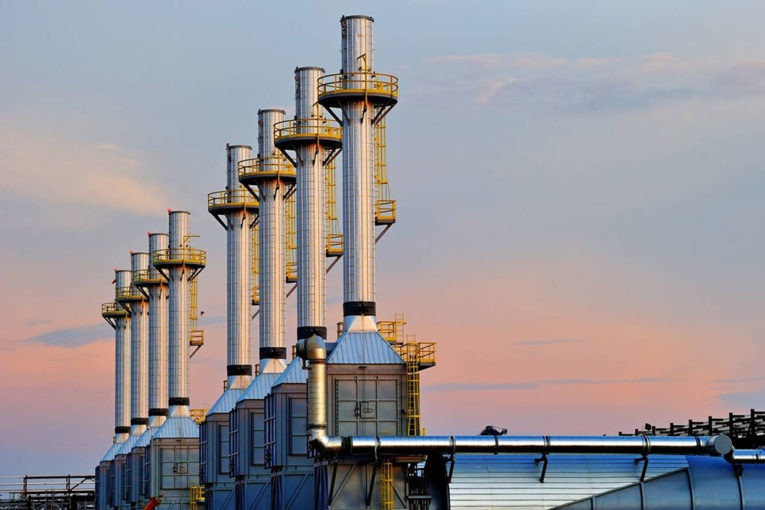
A slowdown in big energy deals pushed the value of mergers in Canada lower for the first time since 2013, offsetting a decade-high resurgence in domestic transactions.
Canadian firms were involved in US$243.5 billion worth of mergers and acquisitions through Dec. 26, down 11 per cent from US$272.3 billion in 2016. The dropoff was largely due to a 25 per cent decline in energy deals, according to data compiled by Bloomberg.
The trend in recent years of Canadian firms buying abroad abated in 2017, falling to about US$122.3 billion, from a record US$176 billion last year. That was still above the average of the previous five years of about US$72 billion. The number of large deals in excess of US$5 billion fell to seven, from nine in 2016.
“It’s just hard to see this level of elevated, cross-border big deals happening at the same pace that it has over the past three years,” said David Rawlings, Canada senior country officer for JPMorgan Chase & Co. “I do expect a little more normalization and I do think activity will be lower in 2018 versus 2017.”
The number of Canadian companies capable of doing these large global deals is limited, and many are still in the midst of digesting transactions from the past few years, he said. At the same time, the domestic Canada market doesn’t offer the same size of takeover targets as the U.S. and elsewhere, he added.
JPMorgan was the top financial adviser for deals involving Canadian firms, participating in US$65.4 billion worth of transactions through Dec. 26. Barclays Plc was second, advising on US$46.7 billion, followed by Toronto-Dominion Bank, at US$43.1 billion. Goldman Sachs Group Inc. came fourth, working on US$39.9 billion worth of transactions and Royal Bank of Canada was next at US$38.6 billion. The numbers may change as new deals are announced.
The largest transaction involving a Canadian firm was Cenovus Energy Inc.’s purchase of a group of oil and gas assets from ConocoPhillips for US$13.2 billion, and was indicative of how the domestic and energy markets played out in 2017.
Domestic M&A hit its highest level in more than a decade with Canadian companies buying $69.9 billion worth of local companies and assets, the highest since 2007, when $79.8 billion of these transactions were recorded.
The domestic market was largely driven by Canadian energy firms buying assets as foreign players exited, said Bill Quinn, TD Securities head of M&A. He said he expects the activity to shift to more consolidation among the Canadian mid-sized oil and gas companies next year. Domestic energy deals hit their highest point on record at $38.3 billion, up from $13.7 billion a year ago.
“It’s a bit of a continuation of the less-than-favorable environment in the energy market in Canada right now,” he said. “There’s less foreign interest in the Canadian resource plays as evidenced by guys leaving.”
The lack of foreign interest was largely driven by the perception that Canada has higher-cost basins to produce, environmental concerns around buying oil-sands assets, and a lack of transportation options for export, he said.
Bruce Rothney, Barclays’s chief executive officer in Canada, said a lot of the recent client discussions have focused on digital disruption and the impact on their businesses. Barclays expects this trend to accelerate, driving dealmaking across all sectors.
Companies are reacting by either fortifying their traditional business models through greater scale or by partnering with new entrants, he said. Importantly, Silicon Valley players aren’t the only ones driving this change. He said he expects this innovation to be increasingly driven by large Chinese players like Alibaba Group Holding Ltd., Tencent Holdings Ltd., and JD.com Inc.
“We’re spending a lot of time trying to think of that future state and talk to our clients about that and trying to get a little ahead,” he said.
Luke Gordon, Goldman Sachs’s head of Canadian M&A, said he expects to see some renewed activity in the mining sector next year. In particular, he expects to see activity with mid-sized mining companies buying smaller precious and base metal companies, and the occasional major buying a smaller rival.
Mining Rebound
“There will be a return to a more historical M&A ecosystem in mining that had gone away to some extent over the last 24 to 36 months,” he said. “Investors are beginning to look for reserve replacement and reserve growth.”
The environment for M&A remains strong heading into 2018 with the economy’s steady footing, availability of financing, and interest rates near historic lows, said Peter Buzzi, RBC’s co-head of M&A. Even with the dropoff in the value of deals in Canada last year, the totals remain well above the average of the previous five years at around $190 billion.
He said the only potential headwind is that valuations on some public companies are hitting unprecedented levels and are spooking potential buyers. The strong equity market has also seen several companies that could have been takeover targets go public instead, he added.
He expects Canadian M&A will likely be at or above current levels in 2018.
“What drives M&A is confidence in the economy,” Buzzi said. “It’s still a very robust market.”
Bloomberg.com
You can read more of the news on source
